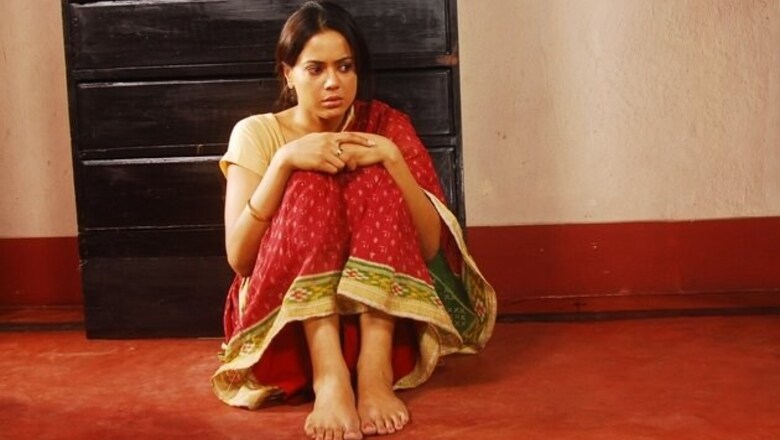
views
Buddhadeb Dasgupta’s Ami Yasin Ar Amar Madhubala, unlike most of his films, carries a scathing social comment on the dehumanisation of the individual who, at some point of time, finds himself so enslaved to sophisticated surveillance techniques that human interaction holds no meaning for him.
Dilip (Prosenjit) is a young man who lives alone in a sparse room in a dingy Kolkata bylane and makes a living out of installing surveillance infrastructure. The only ‘friend’ he has is a framed, black-and-white portrait of the beautiful 1950s' actress Madhubala who he carries on his monologues with. So, when his small town buddy Yasin (Amitav Bhattacharya) joins him in search of work, he finds it difficult to communicate with him.
When Rekha (Sameera Reddy), an attractive young girl from another small town moves in next door, Dilip is drawn towards her. Having lost all manner of communicating with a fellow-human he cannot express his feelings for her.
One morning, Rekha is shocked to discover by sheer chance that her most intimate moments in the privacy of her room were being captured on a spy-cam fixed above her dressing cabinet mirror.
A police complaint uncovers the culprit – it is Dilip, who is away on business with Yasin. Rekha feels the shock of having been raped, day after day, by a man she placed her faith in. The shock is about the vulnerability of a young girl who is raped by a rapist who is not even in the same room with her, much less having the physical access without which even an attempt is not possible.
Sunny Joseph’s camera freezes her shock in time. It captures her in a mesmerising mid-shot sitting on the floor of her room, back to the wall, her hair a bit askew, her sari revealing the hemline of a petticoat and her ankles, after the police have left.
Dilip and Yasin begin their escape from the police’s dragnet. They now are a suspected terrorist duo following a terrorist bomb blast in the city around the same time. Yasin is felled by police bullets and Dilip is captured, tortured and then set free for want of evidence. By then, however, he has lost the ability to walk.
The film keeps winding its way through the darkly lit corridors and streets of Kolkata, captured for eternity through Sunny’s brilliant camerawork and Amitabh Dasgupta’s editing. They follow the tracks of this strange trio who explore their different worlds in different ways as the multi-layered narrative structured within Dasgupta’s favourite anti-narrative form, uses visual poetic metaphors to enrich the form cut away from the content. There are references to Dasgupta’s own poetry, too, and though these are discernible to those who are familiar with his recent films, they might not gel with the lay audience at all.
The jarring point of the film is the forced inclusion of a fictional character called 'Bula-di' (Kamalika Banerjee), the human personification of the West Bengal Government’s official media puppet. Christened Bula-di, it was created for public service campaigns to prevent HIV and AIDS with television spots and hoardings advising against promiscuous and indiscriminate sex. Bula-di appears from and disappears from nowhere to carry on fictitious conversations with Dilip about his sexual desires. These episodes pull down the film considerably because of their hyper-real and exaggerated presentation and treatment.
Biswadeb Dasgupta’s musical score takes on from a spiritual Tagore song, gives it a certain twist and turns it into the theme music for the film.
Prosenjit, Amitav and Sameera Reddy share the acting honours, keeping to the soft and subtle tones of the characterisations. The terrorist angle was not necessary because the immorality contained in intruding into the privacy of an unsuspecting young girl was strong enough to hold its own.
This is no slogan raising film. Nor does it articulate its hidden agenda at any point in the film. The message simply comes across from the unfolding of the narrative, structured with the signature of its maker.
Ami, Yasin Ar Amar Madhubala is a dark and brooding film. It carries a strong but scary message on the state of things possible in the world of sophisticated espionage strategies, sucking our private worlds into a dark abyss from where there is no escape.


















Comments
0 comment